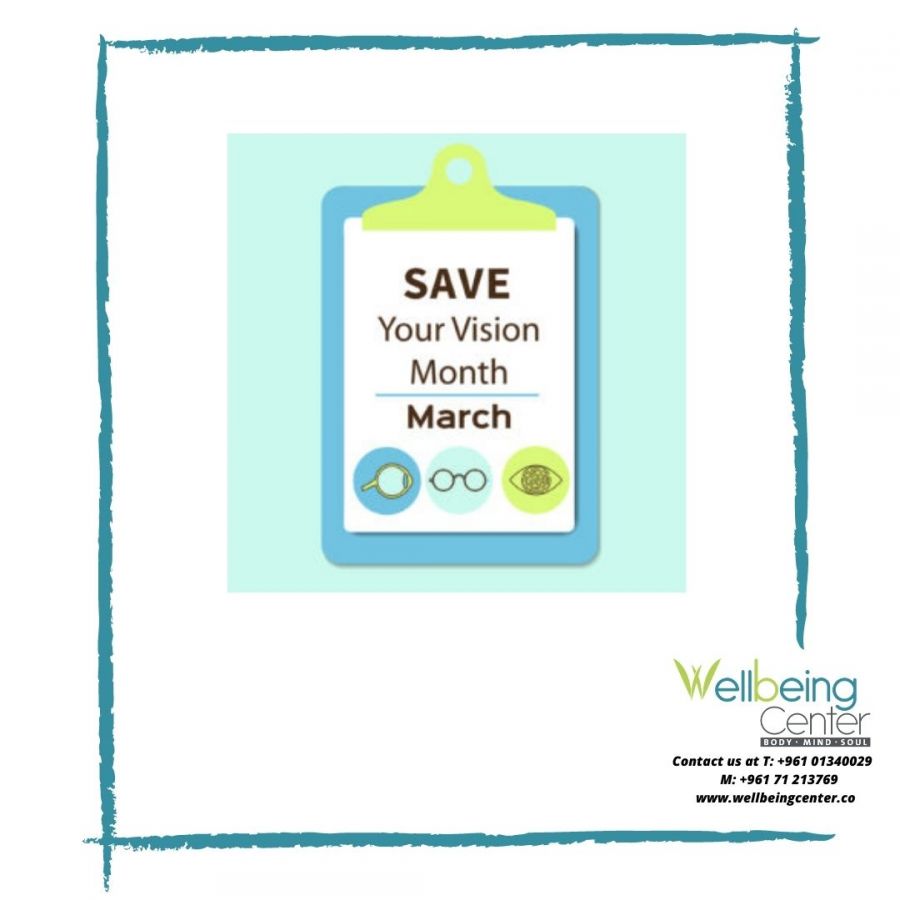7 Vision-Saving Tips for National Save Your Vision Month

In honor of this month, we come up with seven ways to help you support healthy eyesight and save your vision from common problems. Of course, getting your eyes checked should be at the top of your to-do list, but here are seven more things you can do to keep your eyes healthy and your eyesight strong.
#1: Feed Your Eyes – They Will Thank You
Better nutrition is vital to our health. This holds true for your vision as well. One thing that almost all vision research seems to agree on is the need for more omega-3 in our diets.
While omega-3 can help protect your eyes from problems like cataracts, age-related macular degeneration, and glaucoma, it is also essential for good cardiovascular health.
#2: Try Vitamins to Improve Your Vision
For people with an extremely active lifestyle, the simplest answer to support good vision may be to add a supplement to your diet. You know who you are. Eye vitamins can improve your vision and help to prevent many of the common vision problems that can develop as we age.
#3: Practice Safe Computer Use
Our society has become so computer-oriented that we have excluded most other forms of information gathering.
Much of our work and play now consists of using a computer. While they may make our jobs and play more fun, they can also cause severe damage to our eyes.
#4: Wear Sunglasses – In the Summer and Winter
Sunglasses are not just an accessory for your outfit; they serve a very important role in protecting your eye health. Sunglasses protect our eyes by limiting the amount of light that reaches them.
They block most of the ultraviolet rays of sunlight. Ultraviolet rays can lead to macular degeneration, cataracts, and skin cancer of the eyelids.
Forget about a fashion statement and get sunglasses that protect from UVA and UVB light. Not all sunglasses are created equal. Sunglasses without special coatings that protect from UV light may actually cause more harm to your eyes because you’ll think you’re protected from the sun, so you’ll be less careful.
Don’t put the sunglasses away in the winter! Many people only think of wearing sunglasses in the warm summer months, but winter snow reflects the sunlight back up at you. This means that you are exposed twice to the sunlight. Keep the sunglasses handy year-round and protect your eyesight so that you can continue to enjoy the views.
#5: Use Special Care When Applying Eye Makeup
Who knew that eye makeup could be so dangerous?
Pink eye, corneal damage, or possibly something worse can all be avoided by following the simple steps below:
- Don’t apply makeup in a moving vehicle.
- Keep eyeliner pencils sharpened so that the rough wood casing won’t scratch the eye or eyelid.
- Make sure that any instrument (for example, brushes, wands, eyelash curlers) you place near the eye area is clean.
- Wash your hands before applying eye cosmetics. Bacteria on your hands could be transferred to your eyes, causing an infection.
- Never use an old applicator in a fresh cosmetic product. The applicator will transfer bacteria to the new product.
- Don’t use old eye cosmetics. Replace cosmetics every six months to avoid excess contamination with bacteria.
- After any eye infection, such as conjunctivitis (pinkeye), buy fresh eye makeup.
- Don’t borrow makeup from friends.
#6: Stop Smoking
Smoking is as dangerous to your eyes as it is to the rest of your body. Smoking has been found to be a risk factor in the following eye conditions:
- Glaucoma: Smoking causes shrinkage or constriction of blood vessels, which is directly linked to rising inner eye pressure that can lead to glaucoma and accompanying optic nerve damage.
- Diabetic retinopathy: While smoking may not directly cause diabetic retinopathy, most experts agree that quitting smoking helps stop the progression of the disease.
- Cataracts: There is conclusive evidence that smoking causes nuclear cataracts. You are two to three times more likely to develop cataracts if you smoke.
- Graves’ ophthalmopathy: This condition, often associated with thyroid disease, disrupts muscle control of the eye; smoking has been shown to increase the risk of developing thyroid disease.
- Age-related macular degeneration: Smoking doubles your chances of developing AMD.
